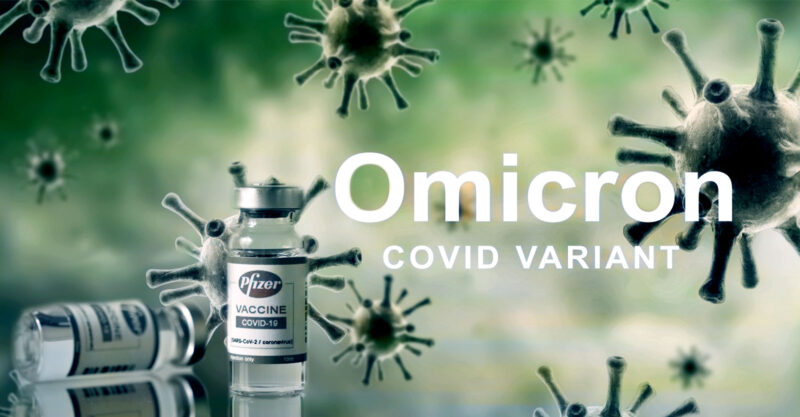Miss a day, miss a lot. Subscribe to The Defender's Top News of the Day. It's free.
Pfizer’s COVID-19 vaccine showed “reduced effectiveness” against the Omicron variant among children 12 and older, according to a study published Wednesday in The New England Journal of Medicine.
The study, funded by the Centers for Disease Control and Prevention (CDC), involved 1,185 patients, 88% of whom were unvaccinated.
During the “Delta-predominant period” (July 1 to Dec. 18, 2021), the researchers reported vaccine effectiveness against hospitalization for COVID among adolescents 12 to 18 years old was 93% two to 22 weeks after vaccination.
During the “Omicron-predominant period” (Dec. 19, 2021, to Feb. 17), among adolescents in the same age group, vaccine effectiveness fell to 40% against hospitalization for COVID, 79% against critical COVID and 20% against noncritical COVID. This group’s median interval since vaccination was 162 days.
The study looked at the Omicron variant, not the more contagious Omicron subvariant, BA.2, which is now dominant in the U.S., according to the CDC.
The authors emphasized their finding that vaccination protected against critical illness from COVID.
They wrote:
“Although two doses [of the Pfizer-BioNTech vaccine] provided lower protection against omicron-associated hospitalization than against delta-associated hospitalization among adolescents 12 to 18 years of age, vaccination prevented critical illness caused by either variant.”
The CDC previously noted reduced effectiveness of the vaccine against Omicron in adolescents and recommended booster shots for people in this age group.
In its March 4 Morbidity and Mortality Weekly Report, the CDC said:
“Two doses protect against COVID-19–associated emergency department and urgent care encounters among children and adolescents. However, vaccine effectiveness (VE) was lower during Omicron predominance and decreased with time since vaccination; a booster dose restored VE to 81% among adolescents aged 16-17 years. Overall, 2-dose VE against COVID-19–associated hospitalization was 73%–94%.”
Dr. Madhava Setty, senior science editor for The Defender, in January noted current vaccine formulations have waning efficacy against Omicron, “yet the pressure to vaccinate at any cost continues unabated.”
“Our medical authorities’ internally inconsistent and conflicting approach is impossible to overlook,” Setty said. “The CDC’s and [U.S. Food and Drug Administration’s] mystifying position can only be the result of their systematic denial of any possibility of vaccine adverse events despite the enormous and mounting evidence to the contrary.”
Vaccinologist Geert Vanden Bossche repeatedly has warned against vaccinating against Omicron with mRNA vaccines that don’t prevent infection or transmission.
Vanden Bossche in a podcast last month said:
“If we don’t take this small window of opportunity to generate herd immunity in a natural way, using the circulating Omicron as a kind of life-attenuated vaccine, then we are gonna mess it up completely.
“If we are now going to vaccinate against Omicron, then I promise that what I have been forecasting at the beginning of this year, that if we would continue this mass vaccination, that this would lead to a disaster. And that is, would lead to severe disease, primarily of course, in people who get vaccinated against this variant.”
Vaccines expose teens to heart damage, other risks
Commenting on the study’s findings that the Pfizer vaccine showed reduced effectiveness in teens, Setty questioned the policy of vaccinating healthy teens in this age group, especially in light of the known risks.
“The link between COVID vaccines and myocarditis, especially in teen boys, is well-known and alarming,” Setty said. “Add to this risk the fact that the vaccines aren’t particularly effective, and that healthy teens have virtually no risk of becoming seriously ill from COVID — especially Omicron — the logical course is to let kids this age develop natural immunity rather than expose them to the risk of permanent or even fatal heart damage from the vaccines.”
Setty last month wrote about the findings of pathologists who examined the autopsies of two teenage boys who died days after receiving the Pfizer vaccine.
Concluding that the vaccine caused the teens’ deaths, the pathologists found evidence of microscopic changes consistent with a form of heart injury called toxic cardiomyopathy.
The U.S. Vaccine Adverse Event Reporting System data from Dec. 14, 2020, to March 18, 2022, for 12- to 17-year-olds show 30,591 adverse events, including 1,755 rated as serious and 42 reported deaths.
This data set included 648 reports of myocarditis and pericarditis, with 636 cases attributed to Pfizer’s vaccine.
There were also 163 reports of blood clotting disorders, with all cases attributed to Pfizer and 68 reports of anaphylaxis where the reaction was life-threatening, required treatment or resulted in death — with 96% of cases attributed to Pfizer’s vaccine.
Children’s Health Defense and thousands of concerned parents on March 16 filed an amicus brief in a lawsuit seeking to stop the Louisiana Department of Health from adding COVID-19 vaccines to the state’s school immunization schedule.
.@ChildrensHD + thousands of concerned parents filed an amicus brief in a lawsuit seeking to stop the Louisana Department of Health from adding COVID-19 vaccines to the state’s school immunization schedule.https://t.co/ioWo7JLaor
— Robert F. Kennedy Jr (@RobertKennedyJr) March 31, 2022
The brief addressed the risks of myocarditis from the vaccine, compared to the minuscule benefits it provides:
“While all must profoundly hope for a different result, if the 20% 10-year mortality rate [for mycarditis] holds true of these boys, then the COVID vaccines will over the next ten years cause the death of approximately 14 per million boys aged 12-15 and approximately 21 per million boys aged 16-17.
“This conclusion is alarming to a degree impossible to overstate. It means that while the COVID vaccines can at most save the lives of 2 children of all ages per million (because only 2 children per million die from COVID), those vaccines may at the same time cause within ten years the deaths of 14 per million 12- to 15-year-old boys and 21 per million 16- to 17-year-old boys.”







